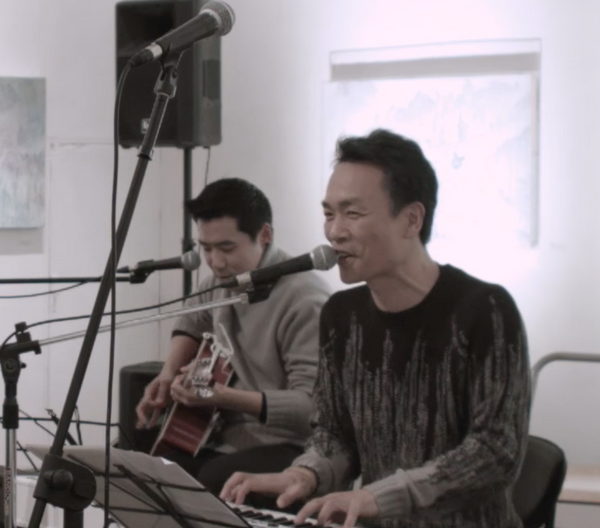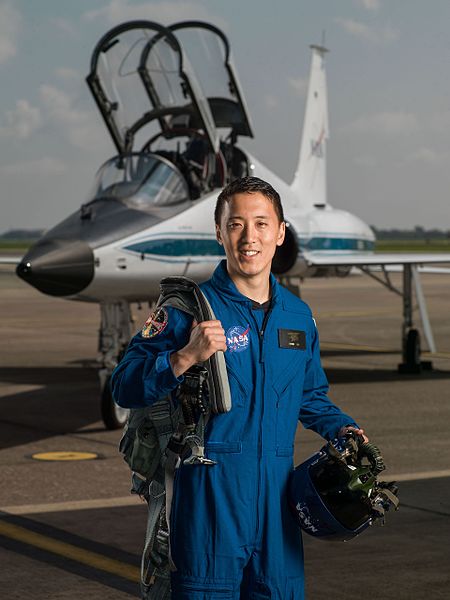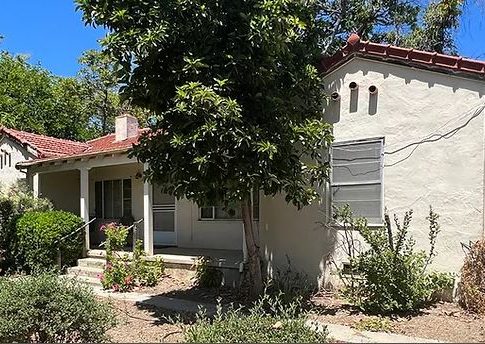By Calla Carter
AsAmNews Intern
In Luke McQueen’s first memory, he is holding a small American flag. He is five years old and flying to meet his adoptive parents in Longmont, Colorado for the first time. He remembers little of his life before his adoption. “Apparently I was in the orphanage for about a year and a half,” he says, “but I don’t recall anything,” he told AsAmNews.
Luke McQueen is a Korean American singer-songwriter, composer, and producer based in Seoul, South Korea. Born in South Korea in approximately 1972, McQueen was adopted in 1977 as a small child by American parents and raised in the United States, where he worked in corporate America before moving to Seoul in 2013 to pursue music. He released his first music video Thursday to accompany his song Longing (Someday), written and directed by Sunah Kim, which addresses his adoption and Korean American identity.
LATEST STORIES
Longmont, then a town of about 20,000 people, had little diversity. His mother and father networked through church friends and acquaintances to find other Asian adoptees with whom their new son might relate. While he had cordial relationships with the other few Asian children in his community, “it wasn’t like we were a tribe or anything. We were all just trying to fit in and be White.” Young McQueen was resistant to reminders of South Korea, and his parents did not push the subject. At a restaurant shortly after McQueen arrived in the U.S., a waitress tried to talk to him in Korean. “I must have understood her, but I was just ignoring her. I just pretended not to exist at that moment,” he says. “I was so embarrassed or afraid. Maybe I was afraid that she was trying to take me away, or I don’t know.” It taught his parents, though, that South Korea was a touchy subject for their son.
Instead, McQueen’s parents encouraged hobbies he’d had while living in his orphanage. They learned that their son enjoyed singing in the orphanage, so they started him in piano lessons when he was seven or eight years old. While the piano lessons were short-lived – he describes himself as a stubborn student – music remained an important part of his life. He sang often in the church where his father served as pastor, and continued to play piano on his own.
McQueen’s first foray into songwriting was a local talent show competition when he was about eleven years old. “I had written a song that took me maybe an hour to write. It took me maybe fifteen minutes to come up with the general idea, and then an hour to turn it into a song,” he recalls. His main competition was a boy who played Scott Joplin’s The Entertainer. “He did a fabulous job! And I’m up there going, ‘Okay, this is an original piece’ and it’s the simplest song, but yet I win the talent contest.” That contest taught him that “there’s a difference between being the creator versus the amazing player.” McQueen spent the much of the rest of his childhood writing songs on his synthesizer.

Music, McQueen thinks, offered him an escape from his insecurities. “Man, I had the worst acne,” he recalls. “I had the big giant ones that you can’t avoid, and you know, you’re meeting all these perfect skinned people, hoping that they don’t notice that you have these giant boils on your face.” Songwriting was “this little cave of peace and joy and non-judgement for myself that I could create,” he says. “I would just sit hours and hours and hours and write stuff.” By the close of his acne days, McQueen had honed his skills. In high school, he performed at weddings, at church, and worked on creating his own album.
Corporate America
After entering college intending to be a minister and then a doctor, McQueen settled on what he calls the “nice, safe path” and majored in electrical engineering. Upon his graduation in 1998, he worked as a consultant in a number of companies in corporate America. He started as a consultant at what is now Accenture before moving through internet startups, contracting companies, and global corporations.
His work brought him to Los Angeles, where he started producing music. After meeting an artist playing music on the beach, McQueen decided to produce his album. “That was my way of doing music, but not necessarily doing it for myself. When I do it for someone else, I can do it – I can finish,” McQueen observes. “But when I’m doing [music] for myself, finishing is virtually impossible because there’s just so much fear surrounding the eventual judgements that will happen on whatever it is, good or bad.”
That fear, he says, is “what has kept me from doing music for all these years.” McQueen remembers the inner turmoil clearly. “‘Nah, I don’t deserve it. I didn’t go to music school. I didn’t commit to it years ago.’ Whatever the excuse is – there’s about a million of them – you can come up with any one of them and stop yourself in your tracks.”
In 2013, approaching his forties, then living in New York City “living the fancy pants New York lifestyle,” McQueen found himself discontent. “I just couldn’t figure it out. I was kind of grasping at straws and then I realized one day, ‘What is one thing I haven’t dealt with?’ Well, that thing was my adoption, my Korean-ness, and anything related to identity.”
Finding and Searching
After meeting some other Korean adoptees in New York, he attended the International Korean Adoptee Association (IKAA) conference in Seoul. Meeting hundreds of other Korean adoptees “blew my mind. I was just like, ‘I’ve found my tribe. I’ve met my people. There’s all these people who understand almost exactly what I’ve been through’ which is, like, growing up in this other weird family, dealing with your issues, dealing with your Asian-ness in a completely White community. The reality is that everyone grows up in a completely different area, different experience, but yet we all feel the bond.”
Soon after attending the IKAA conference, McQueen moved to Seoul, Korea and began his search for his biological family. McQueen’s search was featured on a KBS Human Theatre television documentary, 30,000 Leagues to Find Mother (엄마찾아 3만리) and its sequel, My Umma, which was featured at the Jecheon International Music & Film Festival (JIMFF). “We went down to the place I thought I was from, a city about two and a half hours southeast of Seoul,” he recalls. “We handed out fliers to like, five hundred to a thousand people.”
“There were like a hundred and fifty calls to the TV company,” he says. “Lots of people wanting to be the family, but not.” Each call emphasizes the effect of the approximately 250,000 South Korean children sent to adoptive families abroad. “There are so many families. It permeates Korea.”
McQueen has given up on his search and accepted the possibility of never finding his biological family. “The reality is I think it’s over for me. If something happens, great. If something doesn’t, it’s okay, too.”
Longing
Back in New York, before he moved to Seoul, as McQueen had begun to explore his Korean American identity, a college friend encouraged him to pursue music by pressuring him to write one song each week.
It was during one of those weeks that McQueen wrote “Longing (Someday),” whose lyrics are a letter to the biological mother he may never know. He had recently requested documents from his orphanage, which pushed him to think about searching for his biological family. The song came from a “feeling of wanting, but not being able to get it because you have no control.” He asked himself, “What would I say if I were on an abandoned island and I was sending a message in a bottle into the ocean?” “Longing (Someday)” was his answer.
Were his biological family to find the bottle, McQueen wants them simply to know he is okay. “I’m not asking for a relationship,” he emphasizes, addressing the family he will likely never know. “I just kind of want to be having dinner with you guys, looking into your face, kind of seeing what life might have been like with you guys.”
He also admits that while he has ended his search, song’s accompanying music video, released Thursday, “is kind of a last ditch effort as well. I know that it has the possibility of being viewed. Who knows? Maybe someone will be like, ‘Oh yeah, that guy looks just like my uncle.’ Who knows what can happen?”
Though he avoids being overtly polemical, McQueen alludes to the Adoptee Citizenship Act of 2018, a bill proposed in the U.S. Congress which would guarantee citizenship to all international adoptees. In the video’s opening, he mentions the approximately 26,000 South Korean international adoptees who are stateless, some of whom comprise a lesser known population of undocumented Americans, profiled by the New York Times in 2017. “It’s ridiculous,” McQueen remarks. “They were supposed to get citizenship at the beginning. And everyone’s like, ‘Don’t you get it automatically?’ and the answer is ‘No.'”
However, McQueen’s goal isn’t to push any political agenda or cast judgement. “I hope it just makes people think and ask questions,” he says, whether it is adoptive parents talking to their children or adoptees learning more about themselves or about the experiences of other adoptees.
In the music video, McQueen runs toward rather than from both his identity as a Korean adoptee and his passion for music. He addresses his struggle between his American and Korean identities, and his sense that in both countries, he will “always be an outsider” and visually confronts the “little child who was hurt” from being stripped away from family and neglected in an orphanage.
“That’s part of my journey,” he says. “I hope I can help others as well.”
AsAmNews has Asian America in its heart. We’re an all-volunteer effort of dedicated staff and interns. Check out our Facebook page and our Twitter feed, Please consider interning, joining our staff or submitting a story for consideration.










